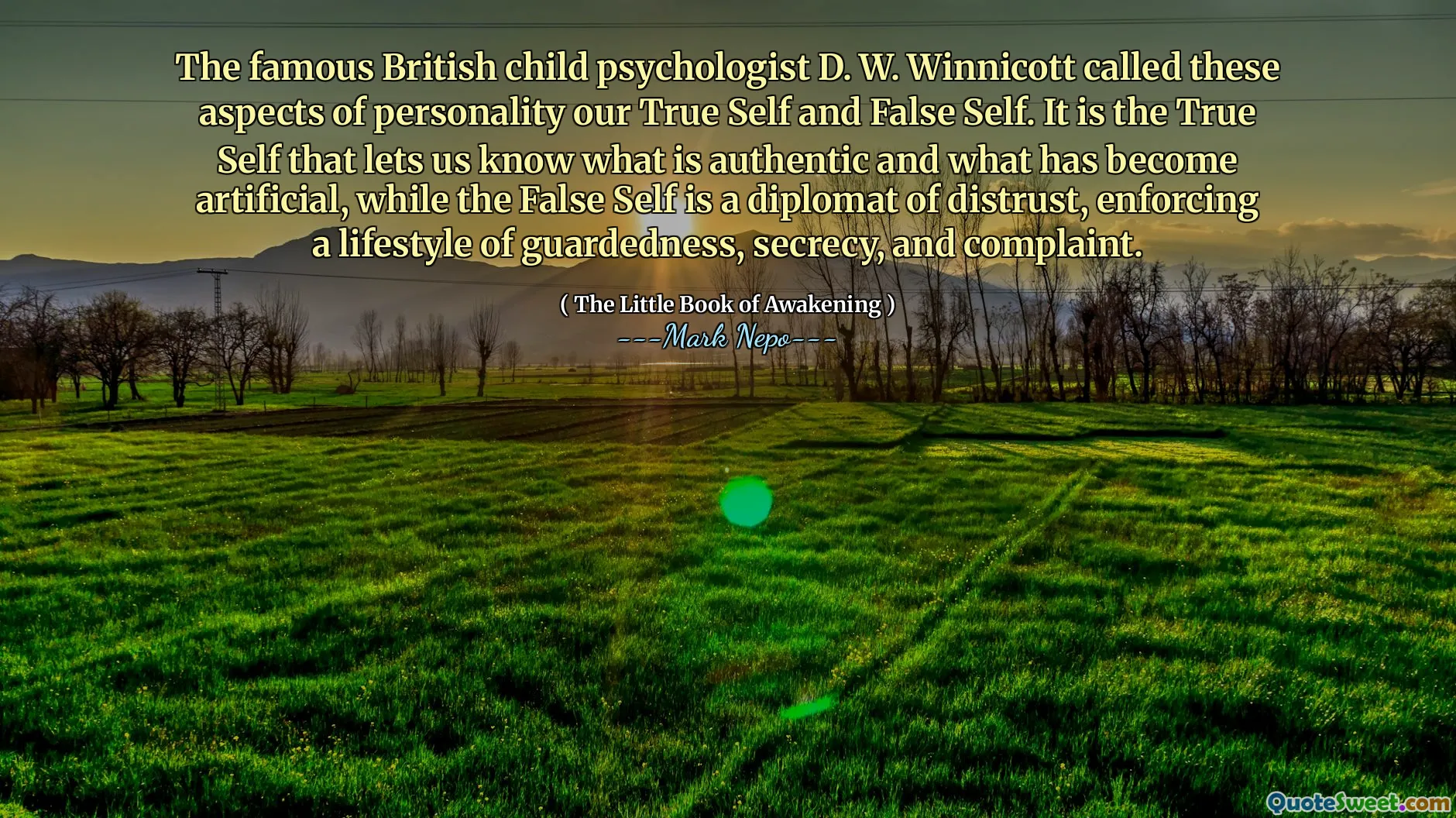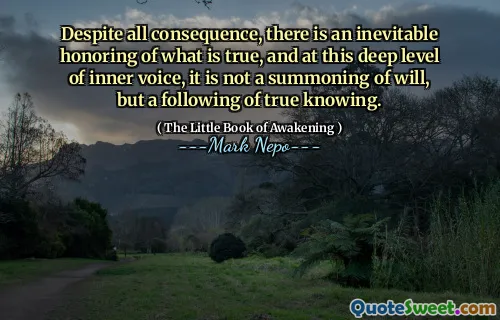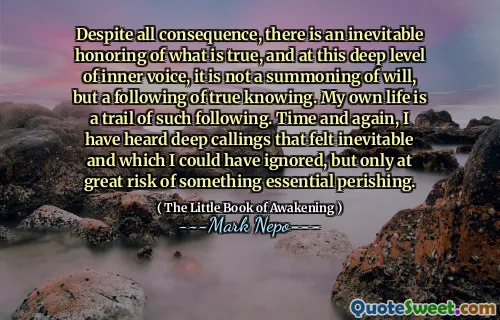
The famous British child psychologist D. W. Winnicott called these aspects of personality our True Self and False Self. It is the True Self that lets us know what is authentic and what has become artificial, while the False Self is a diplomat of distrust, enforcing a lifestyle of guardedness, secrecy, and complaint.
D. W. Winnicott, a renowned British child psychologist, differentiates between two aspects of personality: the True Self and the False Self. The True Self represents our authentic selves, allowing us to recognize what is genuine in our lives. In contrast, the False Self serves as a facade, encouraging distrust and leading to a guarded existence filled with secrecy and complaints.
This perspective highlights the internal conflict many face between living authentically and adopting a protective, often artificial persona. Understanding these dynamics helps individuals navigate their emotional landscapes and seek a more genuine existence, as described in Mark Nepo's book, "The Little Book of Awakening."











